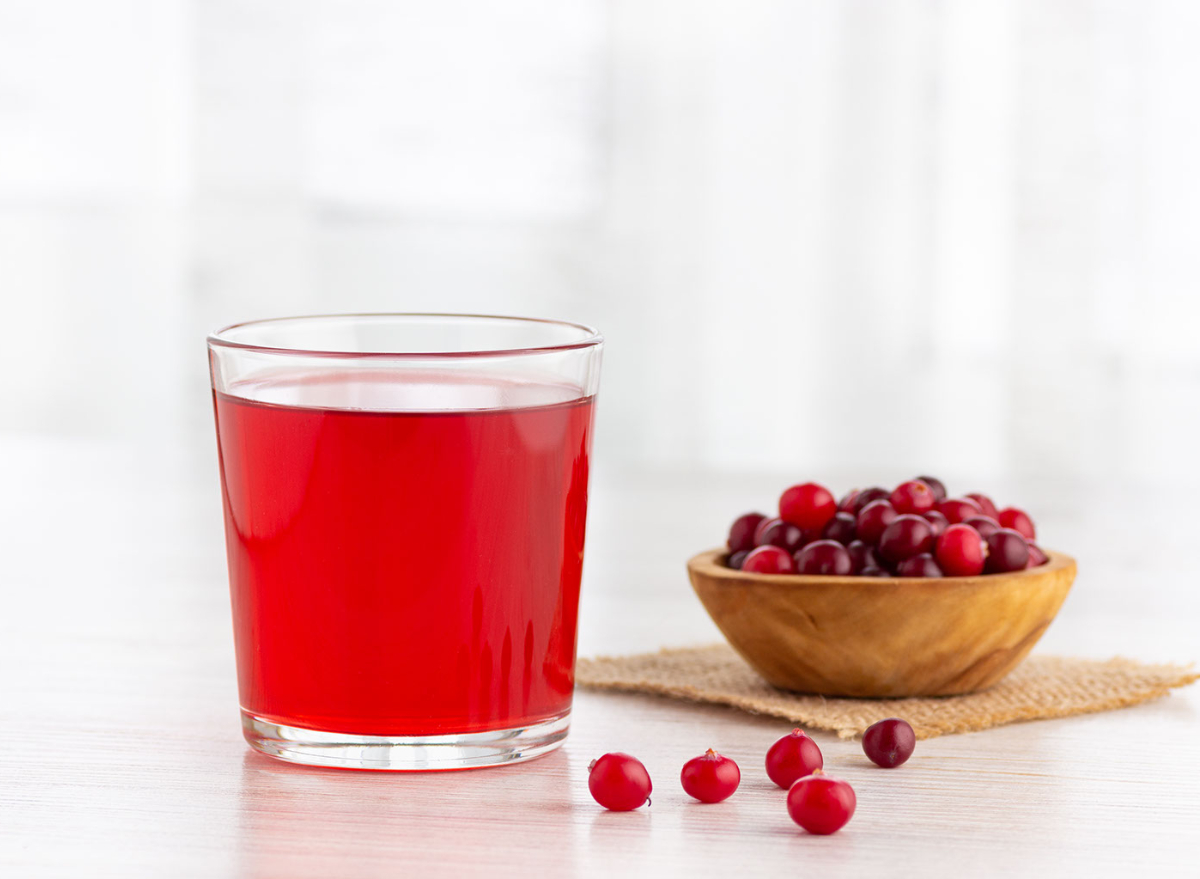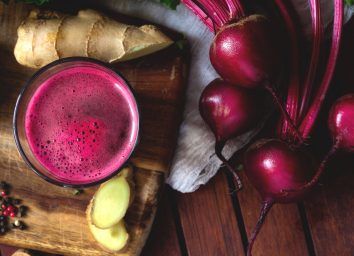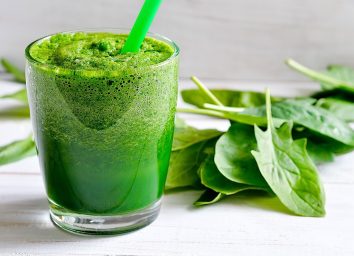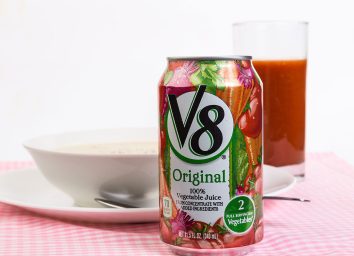One Surprising Effect of Drinking Cranberry Juice, New Study Says

The benefits of cranberry juice for urinary health have been demonstrated and upheld by plenty of medical professionals. Now, a new study has revealed yet another reason to consider keeping a jar of cranberry juice in the fridge: It may help to prevent stomach ulcers, and even some gastric cancers.
Helicobacter pylori—often referred to as H. pylori—is a type of bacteria that sometimes appears in the gut. Inside and even outside the field of science, there's long been a debate: Is H. Pylori good or bad? But most medical professionals agree that H. Pylori can lead to major health problems if it's not kept in check. Research has shown that those can include stomach ulcers, as well as some cancers, such as stomach cancer, esophageal cancer, and even some types of lymphoma.
RELATED: The One Vitamin Doctors Are Urging Everyone To Take Right Now
The good news is that science has just found an everyday supermarket find—that's right, cranberry juice—contains a compound that can help prevent certain bad bacteria from adhering to parts of the digestive system where, if the bacteria were to get out of control, it could lead to major health problems.
A study in China that's just been published in the Journal of Gastroenterology and Hepatology included 522 participants who'd tested positive for H. pylori infection. For eight weeks, 294 of those participants consumed varying amounts of cranberry juice coupled with an added boost of a polyphenol that's found in cranberries, proanthocyanidin (PAC), while the remaining 228 participants took a placebo: cranberry powders that contained an amount of PAC, minus cranberry juice.
Two weeks into the eight-week trial, two groups of participants saw the biggest drop in H. Pylori infection rates: The cranberry powders group, and those who consumed high levels of cranberry juice—480 milliliters containing 88 milliliters of PAC.
Cranberry juice can be a beneficial supplement to the diet, according to the study's lead author, Kai-Feng Pan, MD, PhD, Key Laboratory of Carcinogenesis and Translational Research at the Department of Cancer Epidemiology, of Peking University Cancer Hospital & Institute: "While not alternatives to antibiotics, effective complementary strategies, like cranberry, that can contribute to managing H. pylori infections without negative side effects are highly desirable."
Last year, researchers in Israel found that cranberry juice's benefits in fighting H. pylori infection work similarly to the way cranberry juice fights urinary tract infections (which reportedly are caused by E. coli bacteria 80% to 90% of the time): Cranberries contain a compound commonly referred to as "condensed tannins," which surround these bad bacteria and prevent them from adhering to the digestive and urinary system.
Sign up for the Eat This, Not That! newsletter for the nutrition news you need each day. Also don't miss The 5 Most Alarming Grocery Store Food Poisoning Risks, FDA Warns.
Editor's note: A previous version of this story mistakenly reported the findings of the study to claim that 45 days after it finished, 75% of the participants who had received cranberry juice all tested negative for H. pylori. Indeed, the success rate was 2.3% (6 subjects out of 266 total participants).








